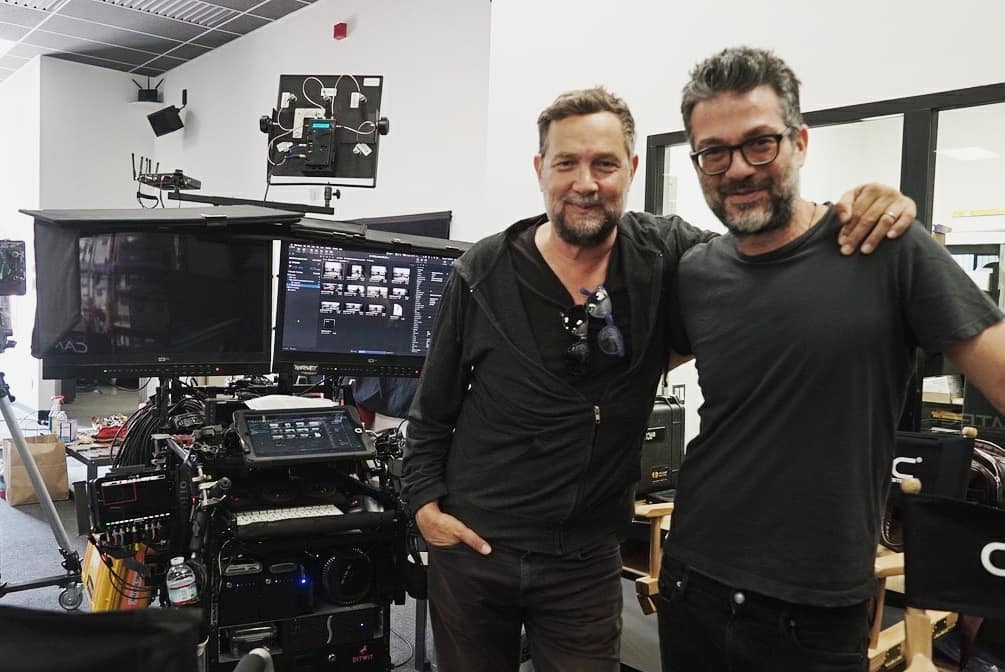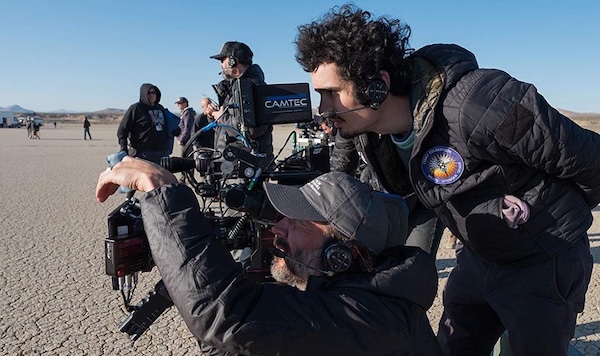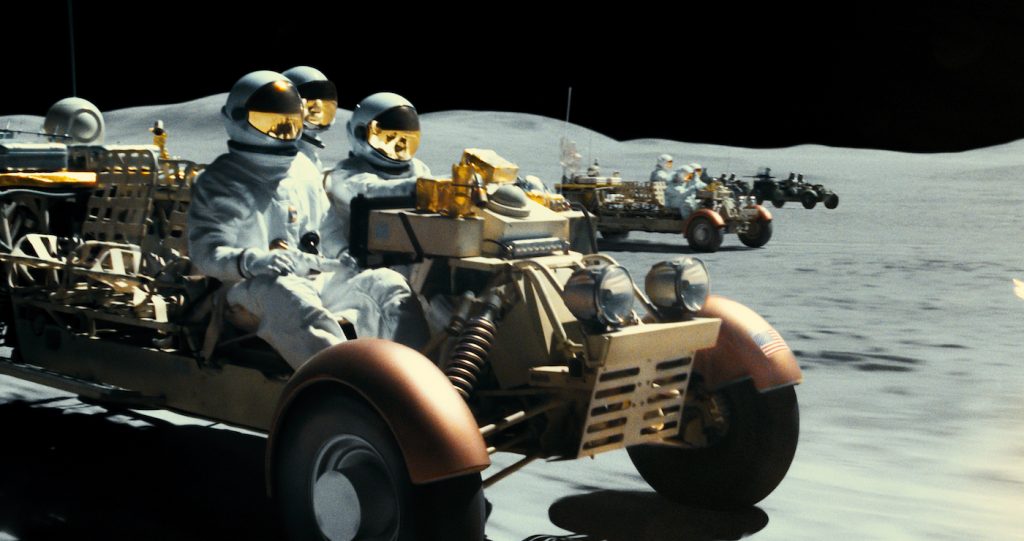Inside Camtec: The Boutique Camera House Behind Films From Damien Chazelle, Denis Villeneuve, Bradley Cooper & More
“We support everything from large-scale blockbusters to high-end commercials to intimate indie films. The scale may change, but our approach doesn’t: we give each production the same level of care, attention, and collaboration,” says Kavon Elhami, the CEO of Camtec, an equipment rental company located in Burbank, California.
For nearly four decades, the boutique shop has been servicing (and collaborating) on countless projects, including Denis Villeneuve’s Arrival, Taylor Sheridan’s Hell or High Water, David O. Russell’s American Hustle, James Gray’s Ad Astra, and Bradley Cooper’s A Star is Born. Their success, in part, stems from their reputation for an extensive vintage and specialty lens collection, many of which have been carefully restored, rehoused, or modified in-house. “We carry rare anamorphic sets, classic spherical lenses from multiple eras, and unique glass that offer character you won’t find anywhere else,” Elhami notes.
However, Camtec isn’t limited to the glass business. They offer different film and digital camera bodies, ranging from ARRI, RED, Sony, Blackmagic, and Phantom for anyone requiring high-speed frame rates. Need something customized? The company says it’s no problem.
“Custom rigs and lens modifications are a big part of what we do at Camtec. We work closely with cinematographers to design solutions that match their creative vision — whether that means building a specialty camera rig for a unique shot, adapting a lens mount, fine-tuning focus mechanics, or modifying optics to achieve a particular look. Our in-house team has deep experience with precision machining, optical adjustments, and integrating third-party accessories so everything works seamlessly on set,” says Elhami.
While renting from Camtec is a breeze, requiring standard industry insurance and a rental agreement, if you’re not exactly sure of your needs, the company suggests their Burbank location is a “creative playground for filmmakers,” with a number of prep bays and testing areas for filmmakers to dial in their camera and lens package. “We love when clients treat our space like an extension of their set — a place to explore looks, test ideas, and solve challenges before the shoot,” says Elhami. “Our team is always close by, ready to offer technical guidance, share lens insights, and help fine-tune every detail so everything is ready to roll once you’re on location.”
Below, Kavon Elhami shares further insight into Camtec and why collaborators keep coming back to the facility.

Can you tell us about Camtec and how the company has evolved over the years?
Camtec is a camera rental house based in Burbank, specializing in supporting motion picture, television, and commercial productions. Founded in 1988, our roots are in building strong relationships with cinematographers, crews and production, and providing tools that help them achieve their creative vision. Over the years, we’ve become known for our deep and unique inventory of lenses, as well as our ability to customize optics to match a DP’s specific aesthetic goals.
What sets Camtec apart from other providers?
While technology has changed dramatically, our core philosophy hasn’t — we still believe in personalized service, technical expertise, and a hands-on approach that puts filmmakers first. From small passion projects to large-scale studio features, we’ve grown alongside the industry, evolving our gear and techniques while keeping that same close-knit, collaborative spirit. What also sets us apart is the way we merge deep technical expertise with true creative partnership. We’re best known for our one-of-a-kind lens inventory — from rare vintage optics to modern glass — and our ability to modify and tune those lenses to match a cinematographer’s exact vision. But it’s more than the gear. Our team takes the time to understand each project, offering tailored solutions rather than cookie-cutter packages. We maintain a boutique scale, so that every production, whether a small indie or a major studio feature, gets the same level of care, access, and attention. Filmmakers know they can come to Camtec not just for top-tier equipment, but for collaborators who are as invested in the story as they are.

How has your relationship with cinematographers and filmmakers shaped the company’s direction?
Our relationships with cinematographers and filmmakers have been the heart of Camtec from day one. Listening to their needs, challenges, and creative ambitions has directly shaped the way we operate — from expanding our lens inventory based on requests, to developing custom optical modifications, to adapting quickly as new technologies emerge. Many of our most unique offerings exist because a DP came to us with a vision, and we found a way to make it real. These collaborations have pushed us to innovate, stay nimble, and maintain a boutique scale where every client feels heard and supported. In short, the company’s direction has always been — and continues to be — guided by the artists we serve.

Camtec offers film and digital camera bodies. For filmmakers or producers leery about film, what would you tell them?
We understand that film can feel intimidating, especially if you’ve only worked in digital. But shooting on film is far more accessible than many people realize — and we’re here to guide you through it. We walk filmmakers through our workflow and can recommend crews experienced in film, offering plenty of prep time to ensure there are no surprises. The beauty of film is that it invites a different pace and focus on set, and the results speak for themselves — rich texture, organic color, and a depth that’s hard to replicate digitally. For many who try it, the experience turns from hesitation to love before the first roll is even finished.
What goes into Camtec’s decision to add new gear to your catalog?
For us, adding new gear isn’t just a business decision — it’s a creative one. We think about how each piece will serve the cinematographers and filmmakers who trust us with their vision. Does it open up a new visual language? Does it offer a look or a texture that’s different from anything else we have? Will it inspire a DP the way a great instrument inspires a musician? We test everything extensively, not only for performance but also for character, because the gear we carry becomes an integral part of the storytelling. Our goal is to keep the catalog tight, intentional, and full of tools that genuinely make a difference on set — not just whatever’s trending at the moment.
Camtec offers a color control tool called Color-Con. Can you share what it is and how it’s beneficial for workflow?
Our proprietary Color-Con is a compact, high-quality optical tool that allows filmmakers to create unique in-camera color and diffusion effects right on set — no post-processing required. It mounts directly in front of the lens, giving DPs and directors a hands-on way to experiment with color tones, subtle shifts in contrast, or layered visual textures during production. Because you can see the effect in real time, it helps cinematographers make confident creative choices and ensures everyone — from the DP to the director to the colorist — is on the same page from the start. In workflow terms, it can save time in post by getting the desired look in-camera, and it gives productions a way to test, tweak, and lock in a visual style before rolling.

Does Camtec get involved with student projects or lower-budgeted projects?
Yes — supporting student projects and low-budget films has always been part of Camtec’s DNA. We remember what it’s like to start out, and we believe that access to quality tools and guidance shouldn’t be limited to big-budget productions. We work with film students, emerging cinematographers, and independent filmmakers to tailor camera and lens packages that fit their budget while still delivering the performance they need. Just as importantly, we offer the same technical support, prep time, and collaborative spirit that we give to our largest productions. For us, it’s about fostering relationships and helping the next generation of filmmakers bring their stories to life.
California has expanded its film tax incentive through 2030. How much will that impact your business?
It could have a significant positive impact on our business. More productions would be encouraged to shoot in-state, which means more opportunities for us to support them with gear, technical expertise, and prep facilities. The ripple effect would extend beyond major studio projects — indie films, commercials, and streaming series could also benefit, keeping more of that work local. While we already serve productions nationwide, having more projects based in California strengthens the local production ecosystem and allows us to work more closely with filmmakers in person, where our collaborative, boutique approach truly shines.
How do you see the role of the camera rental and support companies evolving over the next 5-10 years?
In the film days, rental houses were essential because film cameras were complex, delicate machines that required constant maintenance and calibration — something most productions couldn’t handle on their own. With digital, the cameras are more robust and far easier to maintain, which means many DPs, owner-operators, and production companies own their own gear. That’s shifted our role from being the sole source for cameras to being a resource for specialized tools, rare lenses, custom engineering, and expert technical support. Over the next 5–10 years, we see camera rental companies thriving not by being the only place to get a camera, but by being the place to get the right camera and lens package for a specific creative goal, along with the knowledge and collaboration that can’t be bought off the shelf.
This article is part of an ongoing series that raises awareness about businesses in the film and television community. Camtec is a member of the California Production Coalition. The series includes:
Featured image: On the set of “A Star is Born” with Bradley Cooper. Courtesy Warner Bros.



